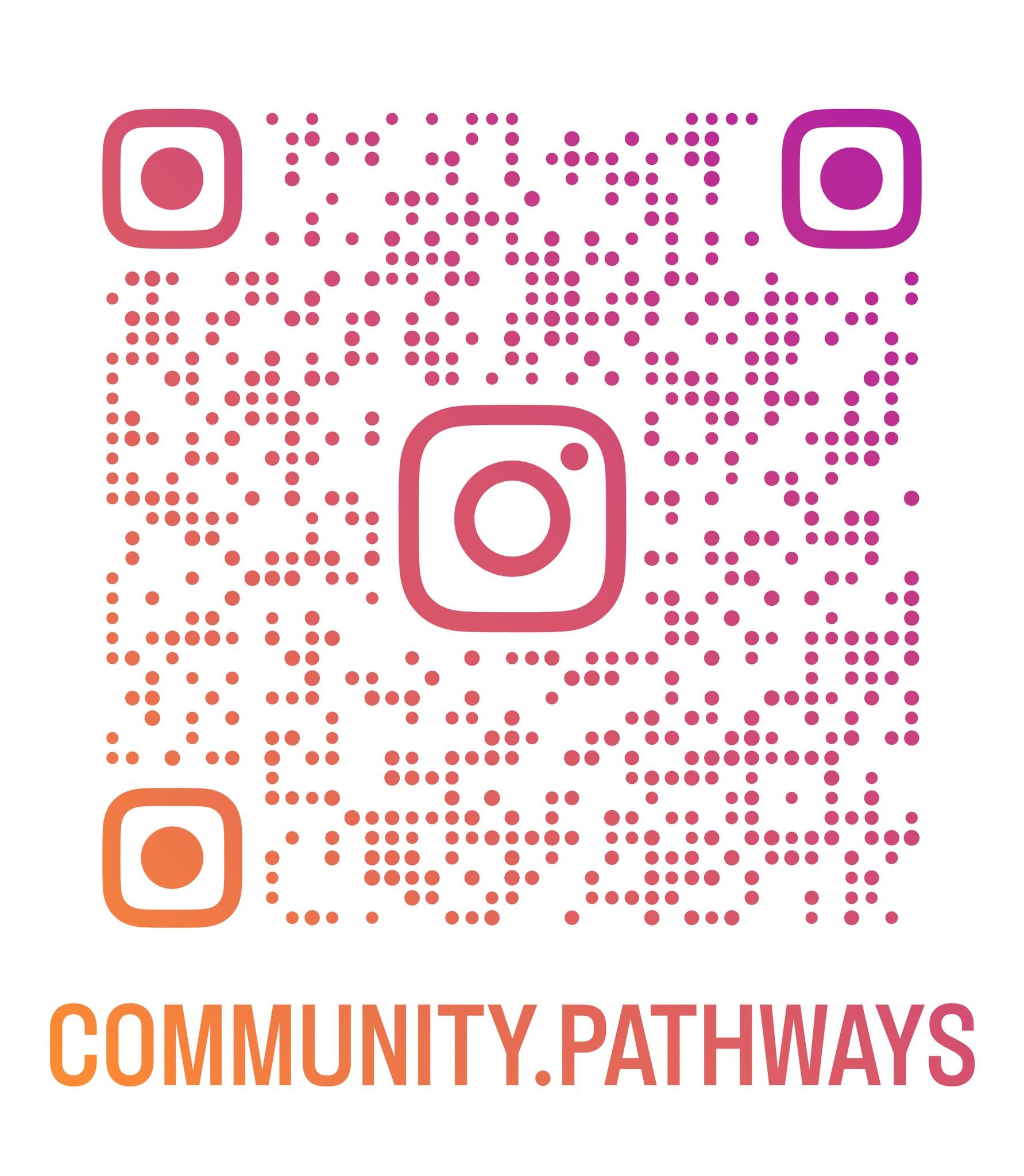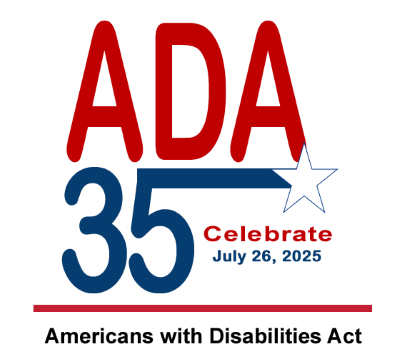CPI Newsletter: Summer 2025
Happy Summer! In our latest newsletter, you will find the following information, activities, and resources:
Message from the Director, Jennifer Santiago
This Message from the Director has been updated. Since it was published, the One Big Beautiful Bill, which includes cuts to Medicaid funding, has been signed in to law by President Donald Trump.
Stay tuned for more information and updates about Medicaid over the coming months. We are here to help the people we serve understand what this means for them and their families and support providers, and share steps to continue advocating for disability rights and services moving forward.
What to Know about Medicaid Cuts in Reconciliation Bill
We understand that a lot of people are concerned about the potential cuts to Medicaid services and we are too. Our goal is to help people understand what is currently happening and to provide an avenue for advocacy. We also want to reassure people that we will continue to be here to support our customer base. The One Big Beautiful Bill includes a lot of information that we will not get into. Our focus is solely on what we know, at the time of this writing, as it relates to Medicaid. The One Big Beautiful Bill is a bill introduced by President Donald Trump that focuses on tax cuts and spending cuts, including spending cuts to essential services like Medicaid and SNAP benefits.
The bill would result in stricter eligibility requirements that would add barriers that make it more difficult for people with I/DD to enroll in Medicaid. These barriers would result in millions of low-income individuals to lose access to health insurance.
The bill, as passed by the House, proposes at least $600 billion in Medicaid cuts over the next 10 years. And the version passed by the Senate proposes even steeper reductions to funding.
What is Happening with the Bill?
The One Big Beautiful Bill Act, which includes cuts to Medicaid, is currently going through the legislative process at the federal level. For the bill to pass, it has to pass through both U.S. Chambers of Congress: the U.S. House of Representatives and the U.S. Senate. It then has to be signed by the President.
On May 22nd, the bill passed the U.S. House of Representatives with 215 yes votes to 214 no votes.
On July 1st, the bill passed the U.S. Senate with 51 votes yes and 50 no votes. They have made changes to the bill that create even more cuts to Medicaid. One of these cuts is to the Medicaid expansion program of the Affordable Care Act. This expansion gives programs like the K-Plan in Oregon additional funding. It also allows access to Medicaid for certain groups of people with developmental and other disabilities. All of these services and the funding for them are critical.
The bill is now back with the U.S. House of Representatives. If the bill is passed, it will move to the President, who is expected to sign it into law by July 4th.
If the bill is signed into law, it will result in cuts to Medicaid spending and impact millions of lower-income Americans, the elderly, and people with disabilities.
The legislative process:
How Oregon’s U.S. representatives voted on the One Big Beautiful Bill Act:
*A “yes” vote means they want the bill to pass, resulting in cuts to Medicaid spending.
*A “no” vote means they do not want the bill to pass, resulting in no cuts to Medicaid spending.
Here’s What You Can Do: Advocate Now!
While none of us know whether Congress will pass the One Big Beautiful Bill, including these cuts to Medicaid, we can advocate!
Take 5 easy steps to advocate today!
Find contact information for your federal representatives. Visit the Congress.gov website.
Contact your Oregon federal representatives by email, phone, or mail using their contact information.
Create a short message to share why you support Medicaid and what actions you want federal representatives and senators to take. Consider sharing your own experiences as someone who benefits from Medicaid. Be polite and professional, even if you disagree with a representative’s position.
Advocate for specific actions. Specifically, advocate for federal representatives to oppose (or vote “No” to) Medicaid cuts and vote against bills that would cut Medicaid spending.
Follow up with your federal representatives if you do not hear back from them quickly. You can also contact their district offices for help.
Contact Oregon’s U.S. House Representatives NOW!
Stay Updated and Spread the Word
We know there is a lot of information to keep up with. The following organizations share critical updates about disabilities, including I/DD advocacy, in Oregon and across the U.S. Visit their websites to sign up for email newsletters and bulletins to get critical updates about what to expect and how to advocate for Medicaid moving forward.
Sign up for:
Email updates from Disability Rights Oregon (DRO) to get critical disability rights updates
The GO! Bulletin from the Oregon Council on Developmental Disabilities (OCDD) and the Oregon Developmental Disabilities Coalition (ODDC) to get critical I/DD advocacy updates.
Check out the:
National Association of Councils on Developmental Disabilities and download Medicaid Matters campaign materials, including stories about why Medicaid Matters in Oregon, to share with your families and networks.
Meet Our New Personal Agents
Meet Erin
Can you tell us about your journey with the I/DD field?
My journey in the I/DD field began in the housing sector, where I provided direct service to individuals in chronically under-resourced communities. There, in addition to experiencing the impact of their disabilities, clients’ lived experiences frequently included other overlapping intersections of structural and systemic oppression. While this environment tended towards extreme scenarios, I enjoyed the process of earning clients’ trust, helping them to navigate complex systems and find resources, and advocating for clients against acts of Fair Housing discrimination. I’m excited to continue working in the I/DD field in an even more focused capacity, with the goal of facilitating access towards one’s Good Life.
What are some of your favorite things to do outside of work?
Anything to do with film, video art, experimental visual media, from going to Portland’s old movie houses to visiting interactive art and technology installations, especially when they are happening in places like the old Gap in the Lloyd Center Mall.
What do you think are the best skills that you bring to your job?
I'm authentically interested in people and their experiences, and I have tons of experience navigating systems of aid.
What are some things you’re looking forward to right now?
Portland Bike Summer night rides, celebrating Swedish Midsummer, and hopefully a camping trip or two!
Meet Brandon
Can you tell us about your journey with the I/DD field?
I’ve worked in the I/DD and mental health fields since 2008. I stumbled into my first job as a Day Treatment Service Technician in Montana, where the Program Manager was looking to hire people who could teach kids a skill over their summer break, and I just happened to know how to play the guitar. Since then, my professional roots have stretched from the mountains of Montana to the city streets of Denver and now Portland.
Along the way, I’ve served as an Early Intervention Service Coordinator, Residential Coordinator for one of Montana’s first ABA DD Transitional Group Homes for teens aging out of the children’s system, Program Manager for Children’s Intensive Mental Health Group Homes, Child Protection Specialist for Montana DPHHS, and Skills Trainer Supervisor in Psychiatric Residential Treatment Facilities in both Denver and Portland. Every one of these roles gave me a front-row seat to both the challenges and strengths within the mental health and I/DD systems. They also instilled in me a deep passion for self-determination, advocacy, and doing right by the people we serve.
I earned my dual B.A. in Psychology and Communication Studies with a minor in Media Arts in 2018. Clearly, I’m a fan of both trying to understand people and using too many words to talk about it.
What are some of your favorite things to do outside of work?
Outside of work, you can generally find me at karaoke, singing punk and classic rock anthems (I’m especially fond of Freddie Mercury and Fat Mike). I occasionally moonlight as a D&D Dungeon Master (in person and online). I’m also a proud bowler. My high score is 300, which I mention just often enough to keep it humble-brag adjacent. I enjoy hiking with my dogs, whether they enjoy hiking with me is still up for debate. I’m also fueled by those white cans of sugar-free Monster Energy drinks, open mics, and a deeply unhealthy love of spreadsheets.
What is one non-work-related goal you’d like to achieve this year?
This year, I set two big personal goals: record and release my first full-length music album, or finally start watching Doctor Who. Whether I can do both remains to be seen. From what I understand, there are only so many hours in the TARDIS.
Follow CPI's New Instagram Account
Exciting news—we have a new Instagram account! We post timely updates about I/DD services and resources, free and inclusive community events, self-advocacy opportunities, and more!
Find us on Instagram by searching the handle @community.pathways and give us a follow!
July Is Disability Pride Month
The Disability Pride Flag
Every July, we celebrate Disability Pride Month as a way to honor the unique history, experiences, and contributions of people living with disabilities. This month also marks the anniversary of the Americans with Disabilities Act (ADA), signed into law on July 26, 1990, which affirmed the rights of disabled individuals in the U.S.
This year’s theme—selected by The Arc’s National Council of Self-Advocates—is “We Belong Here, and We Are Here to Stay.” According to The Arc’s website, this theme is meant to communicate a clear and powerful message from members of the disability community: “we are not invisible, and we will not be pushed aside.”
Learn more about The Arc’s National Council of Self-Advocates and the 2025 theme on their website.
Disability Pride Events
Looking to celebrate and advocate during Disability Pride Month? Here are two great ways to do just that in Portland this July!
Concert in the Park
PHAME PDX and Portland Parks & Recreation’s Summer Free For All are hosting a Disability Pride Concert at Woodlawn Park. Come enjoy this free, family-friendly celebration, with live music, art, food, and community!
Location: 6854 NE Claremont Ave. Portland, OR (Woodlawn Park)
Date: Friday, August 1
Time: 6:30-8:30 p.m.
ADA 35 Weekly Webinar Series
This month, the Oregon Disabilities Commission, Northwest ADA Center, and Disability Rights Oregon are hosting a weekly webinar series in honor of the 35th anniversary of the Americans with Disabilities Act (ADA).
Starting with the first webinar on Tuesday, July 8th, topics will include:
Striving for educational access for students with disabilities
Working towards equal access employment for people with disabilities
Oregon’s journey to accessibility
For more information, including webinar dates and topics, visit the ODHS event website, or see the event flyer in English or Spanish.
Free Community Events
Portland Bike Summer is in full swing!
Pedalpalooza
Pedalpalooza is a fun summer festival all about bikes! For three whole months—in June, July, and August—community members plan and join bike rides of all kinds. There are hundreds of rides, and the majority of them are free and open to everyone. Some rides are silly, some are scenic, and every one of them is all about having a great time on two wheels!
To join a ride, lend a hand, or lead a ride, visit Bike-Summer.org.
Kickstand Comedy in Laurelhurst Park
Looking for some laughs this summer? Kickstand Comedy is back at Laurelhurst Park, now through September 25th. Not only is this event funny, free, and family-friendly, but you can even bring your dog! Bring a friend, your favorite picnic blanket, and be ready to have a great night out.
Event Details:
Where: Laurelhurst Park - SE Cesar E Chavez Blvd & Stark St.
When: every Thursday, now through September 25th (except for July 11th and 25th), starts at 6:30 p.m.
Visit KickstandComedy.org to learn more about Comedy in the Park and other fun, low-cost events at Laurelhurst Park this summer.
The 10th Annual Portlandia Mermaid Parade & Festival
Come celebrate the 10th anniversary of the Portlandia Mermaid Parade & Festival with the rest of the merfolk on Saturday, July 26th—it’s sure to be a splash! In addition to the parade, there will be special live performances, a Merfolk Time Capsule, an interactive Memory Wall, and more.
This event is free, open to the public, and suitable for all-ages. It is ADA-friendly, although individuals using mobility devices may need assistance accessing the beach.
Event Details:
Where: the parade starts at the Japanese American Historical Plaza on the waterfront and ends at Poet’s Beach near the Marquam Bridge.
When: 12-4 p.m.
Cost: Free
Accessibility: ADA-friendly, except access to the beach for people using mobility devices.
Visit the event website to learn more about the parade and to buy tickets for additional events.
Wildfire Season: How to Prepare and Stay Safe
It’s wildfire season in Oregon. This season typically runs between mid-June to mid-October, but the timing and intensity of fire danger from year to year depends on weather conditions. Usually, the risk of wildfires peaks in August when areas across the state are the hottest and driest. This year, Oregon is said to be facing a higher risk of wildfires because of a warm, dry spring and predicted hot, dry conditions throughout the summer. Federal cuts to support staff, including meteorologist and wilderness rangers, means there are fewer people in these positions than usual to support wildfire response efforts.
While we might not be able to control the weather and wind conditions involved in creating and spreading wildfires, there are steps everyone can take to help prevent wildfires from happening and to prepare for responding safely when they do happen.
Key Safety Tips
Here are 3 ways to help prevent wildfires in Oregon:
Create a “defensible space” by removing or plants and debris or trimming branches within 30-100 feet of your home to reduce the risk of fire spreading. Find tips to create defensible space on the Oregon State Fire Marshal’s website.
Practice responsible camping and recreation. This includes ensuring campfires are well-contained and properly extinguished and being extra careful doing activities (like using fireworks or smoking) that cause sparks in dry, windy conditions. Learn more about how to prevent wildfires when out and about on Keep Oregon Green’s website.
Follow local fire safety regulations. Learn about Oregon Fire Code by visiting the Oregon State Fire Marshal’s website.
Here are 3 ways to prepare for wildfires and evacuations:
Be informed. Visit your county emergency management website and sign up for local emergency alerts.
Make a plan. Create an emergency plan, including an evacuation checklist.
Make a Go-Kit. Collect essential supplies for your health, safety, and identification. Items might include a first aid kit, water filtration straws, N-95 masks, and non-perishable food.
Find more information and resources on the Prepare for Wildfires page of Oregon Wildfire Response and Recovery’s website.
Heat Illness Prevention
It’s officially summer in the Pacific Northwest, and that means hotter days are here again. It’s important to know how to stay safe in the heat, especially if you’re working, exercising, or spending a lot of time outside. Heat illnesses—like heat exhaustion or heat stroke—can come on fast and be very dangerous. Here is some basic information to help you stay cool and avoid getting sick from the heat.
Stay hydrated - Drink plenty of water throughout the day, even if you don’t feel thirsty.
Take breaks – Rest in the shade or a cool place, especially during the hottest parts of the day.
Dress for the heat – Wear lightweight, light-colored, and loose-fitting clothes.
Avoid peak heat hours – Try to do outdoor activities in the early morning or evening when it’s cooler.
Use fans or AC – Stay in air-conditioned areas when possible, or use fans to stay cool.
Check on others – Look out for children, older adults, and pets, who are more at risk for heat illness.
Know the signs – Learn the symptoms of heat exhaustion and heat stroke so you can act quickly if needed.
Knowing the signs and symptoms of heat exhaustion and heat stroke can help you to respond appropriately and quickly in case of an emergency.
Need help beating the heat?
Find a cooling center in your local area:
Clackamas County Cooling Center Map
Sign up for Public Alerts in your area to receive emergency alerts.
Visit the National Weather Service Heat Risk site to see how hot it’s expected to get in your area.
For more information:
Read about extreme heat on the Centers for Disease Control and Prevention’s website.
Read Heat stress: Know the signs and how to respond on the Oregon Occupational Safety and Health Division’s website.
Join OSAC’s Inclusive Leadership Summit
Registration is now open for The Oregon Self-Advocacy Coalition’s (OSAC) 3rd annual Inclusive Leadership Summit! This is a unique opportunity for self-advocates, families, professionals, and legislators to connect, learn, advocate and celebrate together.
Tickets to the event are FREE for all self-advocates, family members, and professionals. Lunch and dinner included.
Event Details:
Location: Salem Convention Center - 200 Commercial St. SE Salem, OR 97301
Date: Monday, September 22
Time: 11:00 a.m. - 6:00 p.m.
Reserve your tickets now or visit OSAC’s website for more information.
Self Advocacy in Action
Interns Advocating for Accessible Housing in Oregon
This spring, self-advocates Kristie H. and Lamar W. interned with Community Vision and the Fair Housing Council of Oregon, in partnership with Community Pathways, to advocate for accessible housing in Oregon. They supported a housing advocacy campaign by rallying for SB 444 at the Oregon State Capitol building and helping create accessible housing materials for people with disabilities.
To learn more about accessible housing and fair housing law in Oregon, visit Community Vision’s Housing Access Program website (www.cvision.org/programs/housing-access-program) and the Fair Housing Council of Oregon’s website (www.fhco.org).
To learn more about self-advocacy, check out the Oregon DD Coalition (ODDC) and their GO! Project Legislative Advocacy, the Oregon Self Advocacy Coalition (OSAC), and Self Advocates Taking Action (SATA).
OCDD Wants To Hear From You
The Oregon Council on Developmental Disabilities (OCDD) and Health Management Associates (HMA) want to hear from people with I/DD about their experiences accessing information, resources, and support.
This feedback will be used to improve how OCDD and other organizations share important information and resources with those who need it most.
Survey:
The survey can be completed in roughly 10 minutes.
It is available in both English and Spanish.
For more information, email Kate Thompson at kate.thompson@ocdd.org or call 503-779-5389.
DIY Fruit Kabobs
Recipe and inspiration courtesy of Two Healthy Kitchens.
You’ll need:
Your favorite melons (watermelon, cantaloupe, honeydew, etc.)
Your favorite berries (strawberries, blueberries, raspberries, etc.)
2-3 small cookie cutters
Bamboo skewers
How to assemble:
Start by cutting your melon into slices, about 1/2 inch thick.
Lay the melon slice down flat on your cutting board.
Take your favorite cookie cutter, and press it into the melon flesh.
Carefully remove your new cookie cutter-shaped melon piece and set it aside.
Repeat steps 1-4 until you have as many pieces of melon as you want.
Select the fruit you want for your first kabob (preferably a mix of berries and melon). Pick up your bamboo skewer and stick your first piece of fruit onto it.
Continue to stick your fruit pieces onto the skewer, pushing each as far down as it will go.
Hint: Alternate the color and size of your fruit pieces for an extra beautiful kabob!
Holiday Closures
Independence Day: Friday, July 4
Labor Day: Monday, September 1
























